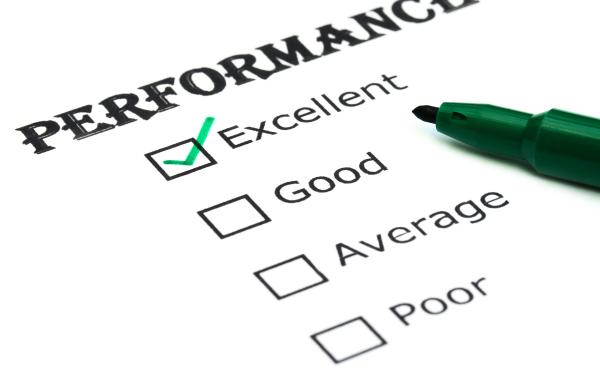
The ECGI blog is kindly supported by

Panel: Corporate Governance & Business Conduct
The 2024 ECGI Annual Conference featured a stimulating panel on corporate governance and business conduct, moderated by Marleen Och. The panel, which included experts from EFRAG, BlackRock, and Euroclear, focused on the evolving role of corporate culture in governance, particularly within the context of the European Sustainability Reporting Standards (ESRS) and Corporate Sustainability Reporting Directive (CSRD). This discussion shed light on both the opportunities and challenges in embedding culture into governance frameworks, while also grappling with the practicalities of defining, measuring, and maintaining an ethical corporate culture.
Defining and Reporting Corporate Culture
One of the central themes was the difficulty of defining and measuring corporate culture, particularly when integrating it into standardized reporting frameworks like the ESRS. Fredré Ferreira of EFRAG shared her initial hesitation around including culture as a reportable element in the ESRS, noting that culture can be nebulous and difficult to quantify. Yet, the CSRD mandate ultimately compelled EFRAG to address corporate culture as an essential component of business conduct. Ferreira’s reflections illustrated a key tension in modern governance: the desire to hold companies accountable for their ethical and cultural frameworks while also recognizing the inherent challenges in creating measurable, comparable standards for something as intangible as culture.
Kristof Macours from Euroclear added depth to this conversation by sharing Euroclear’s approach, which includes a “culture compass” designed to guide internal behaviors toward ethical and sustainable goals. Macours underscored the importance of going beyond mere statistical indicators like board diversity or whistleblower cases. He argued that corporate culture must be assessed qualitatively, observing how decisions are made and how values are applied across the organization. His remarks reflected a belief that culture is fundamentally about lived experiences and daily practices—elements that resist standardization but are essential to meaningful governance.
The Investor Perspective on Culture and Long-Term Value
Laetitia Boucquey of BlackRock provided insights from an investor’s perspective, highlighting how BlackRock engages with companies on cultural issues without prescribing specific practices. Instead, BlackRock focuses on understanding how boards monitor, foster, and assess culture. Boucquey emphasized that strong corporate culture is closely tied to long-term value, as seen in cases like Microsoft, where investor pressure led to a transformative cultural overhaul that subsequently boosted the company’s performance. Her comments underscored the growing role of investors as stewards of not only financial but also ethical and cultural aspects of corporate governance, signaling a shift towards a more holistic view of value creation.
Boucquey’s perspective raised an important point about investor engagement: while BlackRock encourages companies to prioritize culture, they stop short of dictating how this should be done. This hands-off approach reflects the nuanced role of investors in today’s governance landscape, where they serve as both advocates for ethical culture and guardians of financial performance. Boucquey’s remarks suggested that while investors can push for change, they ultimately depend on corporate boards to lead internal cultural alignment, making board oversight and accountability central to the discussion on culture and governance.
Challenges of “Culture Washing” and the Risk of Superficial Compliance
The panel also addressed the concept of “culture washing”—where companies may portray an idealized version of their culture without actual commitment or follow-through. Macours cautioned that with increasing emphasis on culture in ESG reporting, some companies might adopt superficial practices that look good on paper but do not reflect genuine ethical commitment. This echoed Ferreira’s earlier point about the limitations of culture as a reportable metric. Ferreira suggested that while indicators like diversity and whistleblower cases can offer some insights, they are incomplete and often fail to capture the nuanced reality of a company’s culture. Both panelists pointed to the need for deeper, context-driven interpretations of culture to avoid “checking the box” approaches.
This conversation highlighted a key challenge for regulators and stakeholders alike: ensuring that reporting standards foster authentic cultural engagement rather than mere compliance. The risk of culture washing reinforces the importance of qualitative assessments, as well as the need for transparency and honesty in corporate disclosures. By encouraging companies to provide a more honest, self-reflective view of their culture, standards like the ESRS may help mitigate the risks of superficial reporting.
Navigating Double Materiality and Global Reporting Challenges
A critical aspect of the discussion was the global divergence in sustainability reporting, particularly around the concept of double materiality. Ferreira acknowledged that while double materiality—reporting both on financial impacts and the organization’s societal impact—is central to EU standards, it remains contentious in jurisdictions like the U.S., where impact materiality is less emphasized. Boucquey noted that BlackRock advocates for global reporting consistency to reduce complexity for multinational companies, but also recognized the difficulty of achieving alignment given varying regional approaches.
The discussion revealed the complexities companies face in trying to meet multiple, sometimes conflicting, reporting requirements across jurisdictions. Ferreira suggested that while double materiality remains central to the CSRD and ESRS, flexibility and collaboration with international frameworks like ISSB and GRI will be crucial for easing the burden on companies. This conversation underscored the importance of interoperability, as companies operating globally need a cohesive framework to navigate the complexities of international compliance without compromising the integrity of their reporting.
Political Dynamics and Resource Challenges
Panelists also discussed the political context of the CSRD and the challenges of implementing robust reporting standards amid concerns over regulatory burden. Ferreira and Macours shared examples of companies hiring numerous staff dedicated solely to ESG compliance, highlighting the intensive resource demands that accompany standards like the ESRS. This demand for resources has fueled political debate around the CSRD, with some stakeholders advocating for reduced reporting obligations.
The panel’s reflections on this topic illustrated a broader issue in corporate governance: the balancing act between rigorous standards that drive accountability and the practical limitations companies face in meeting these standards. While Slomp and Ferreira emphasized the importance of transparency, they also acknowledged the need for political pragmatism in the face of rising compliance costs.
Reporting as a Catalyst for Cultural Transformation
One of the panel’s most optimistic themes was the potential for reporting requirements to drive real cultural change within organizations. Macours and Ferreira both noted that by mandating disclosures on culture and business conduct, regulations like the CSRD can prompt companies to examine their internal practices and align them with ethical and sustainable standards. Ferreira shared that the process of reporting on culture encourages internal benchmarking, helping companies identify areas for improvement and fostering an environment of continuous cultural evolution.
This insight resonated as a powerful example of how governance standards can serve as more than compliance tools—they can be catalysts for genuine transformation. By setting high standards and requiring companies to reflect on their cultural practices, reporting frameworks can drive companies toward greater alignment with societal expectations, helping them build more resilient and ethically grounded organizations.
The panel on corporate governance and business conduct provided a nuanced exploration of the role of culture in today’s governance landscape. While panelists agreed on the importance of embedding culture into governance, they were equally candid about the challenges this entails—from the risk of culture washing to the complexities of global reporting standards. Ultimately, the discussion underscored that while regulatory frameworks like the CSRD and ESRS are crucial, meaningful cultural transformation requires a commitment that goes beyond compliance. For culture to truly matter, companies must adopt governance practices that encourage transparency, consistency, and long-term thinking at every level.
The session left the audience with a clear message: as corporate governance evolves, so too must our understanding of culture, not as a peripheral consideration but as a central pillar of ethical and resilient business conduct. Through continuous dialogue, qualitative assessments, and a commitment to both transparency and accountability, companies can create cultures that are not only ethical but also aligned with the broader public interest.
_______________
This article is Part Four of a seven-part blog series covering insights and reflections from the 2024 ECGI Annual Conference.
Explore the rest of the posts: read Part One, read Part Two, read Part Three, read Part Five, read Part Six, and read Part Seven.


